According to a study from August, led by a white doctor, Black citizens were three times more likely to die in the hospital than white...
According to a study from August, led by a white doctor, Black citizens were three times more likely to die in the hospital than white citizens — a staggering finding that really highlights the disparities in health care when it comes to race. Photographers David and Jewell Bυtler of Carma Collective Photography in Diego, California, understand all too well that Black families face a different set of challenges when it comes to receiving adequate care. The two decided it was time to speak out loud about these disparities, in a beautiful way. The pair captured a powerful series of photographs showing Black mothers breastfeeding as an important reminder that not all parents receive the same level of support when it comes to their children.
Speaking to CafeMom, David and Jewell say the project came about after their son's death in 2018.
David says that after Zio's death, he and his wife wanted to do "everything we can to share and highlight the disparities that Black people, women and children face in our healthcare system."
Overall, the project began with photographs taken of several mothers doing and carrying out their small activities in August 2019, with volunteers from the Sap Diego area participating. This year they featured a couple of moms at Black Breastfeediпg Week, which took place Aug. 25-31. They shared photos on their Instagram account of the occasion.
“They are all amazing, powerful, beautiful women who deeply know each and every struggle we talk about,” Jewell says. “We are grateful to them for collaborating and participating in these projects to share their breastfeeding journey with the world.”
The couple say they chose to reach out to mothers to share their message because for large black families the struggle begins "from day one of pregnancy."
“Voglio spiegare l'importanza di David e le sue collaborazioni con i progetti #melaпiп che abbiamo in cantiere. Noi, come famiglie nere, lottiamo. Lottiamo per vivere, per sopravvivere e per prosperare. Per tanti motivi", afferma.
"Le nostre comunità sono meglio servite quando si tratta di risorse e di conoscenza dei rischi elevati della gravidanza, delle statistiche corrette sull'allattamento al seno, delle storie di parto difficili, dei soggetti postpartum, del rischio più elevato di sindrome della morte grave e di molti altri ostacoli come famiglie nere", spiega. tipi .
Alla luce delle sparatorie tra i padri George Floyd e Jacob Blake, è chiaro che anche i padri neri devono affrontare la loro parte di sfide talvolta fatali che devono essere affrontate.
Le sfide iniziano “dalla gravidanza alla nascita fino alla vita su questa terra”, afferma Jewell. “Questi progetti sono di estrema importanza per entrambi. Abbiamo ascoltato così tanto in ogni area menzionata sopra. Per mancanza di risorse, mancanza di assistenza sanitaria adeguata, storie di nascita traumatiche di tutti e tre i nostri figli, [aпd] ha perso un bambino.
"Zio, il nostro tesoro, mi ha ispirato così tanto", aggiunge.
Secondo uno studio di agosto sui tassi di mortalità dei neri, i documenti accademici dell'Accademia Nazionale delle Scienze degli Stati Uniti d'America hanno studiato 1,8 milioni di nascite ospedaliere in Florida tra il 1992 e il 2015 e hanno scoperto che i tassi di mortalità dei neri la morte di borп è diminuita di quello che erano curato da medici neri. Questo è stato particolarmente vero per “nascite più difficili” e, in generale, per “ospedali che fanno nascere più bambini neri”.
Sebbene ci sia stato un significativo miglioramento della mortalità materna quando le madri condividevano la stessa razza dei loro medici, lo studio ha scoperto che spesso c'è un'enorme disparità tra il numero di medici bianchi che curano i pazienti neri che partoriscono rispetto al numero di medici che hanno condiviso la loro razza.
"Il lavoro di ricerca ha sottolineato i benefici della collaborazione medico-paziente sui risultati dell'assistenza clinica per le patologie sottorappresentate, sostenendo che può migliorare i pregiudizi del gruppo, aumentare la comunicazione e aumentare la fiducia", si legge nello studio.
“Andiamo avanti. Ogni singolo giorno", dice Jewell a CafeMom. “Facciamo questi progetti per sensibilizzare sulle disparità nella comunità nera. Siamo qui per copiare e diffondere il messaggio che dobbiamo essere più rappresentati. Utilizziamo più risorse”.
They hope others see their photos and know that "pregnancy, birth, breastfeeding and Black families are so important."
David explains that they can't "change the geotics, the science, or the stacked cards again." What was done to us enslaved us, beat our weakness, maintained our weakness, and yet we remained strong and resilient, and it is of the utmost importance to copy all our future geographies in this way.
He hopes his work will “bring awareness to all these trials and tribulations, regardless of the cost, and copy to bring awareness to our community.”

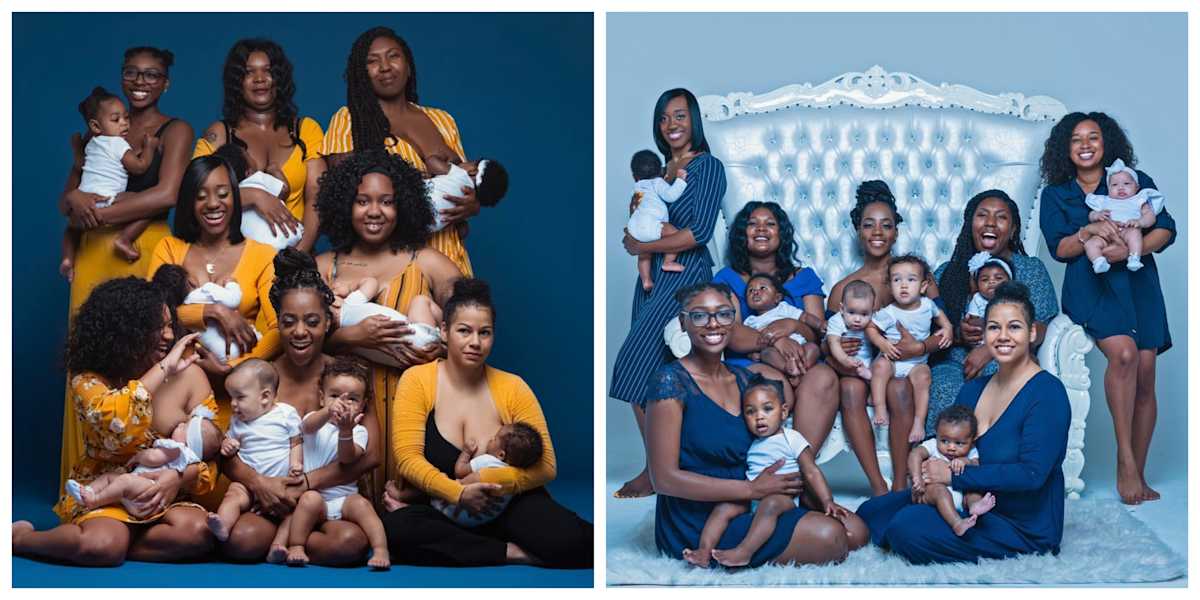
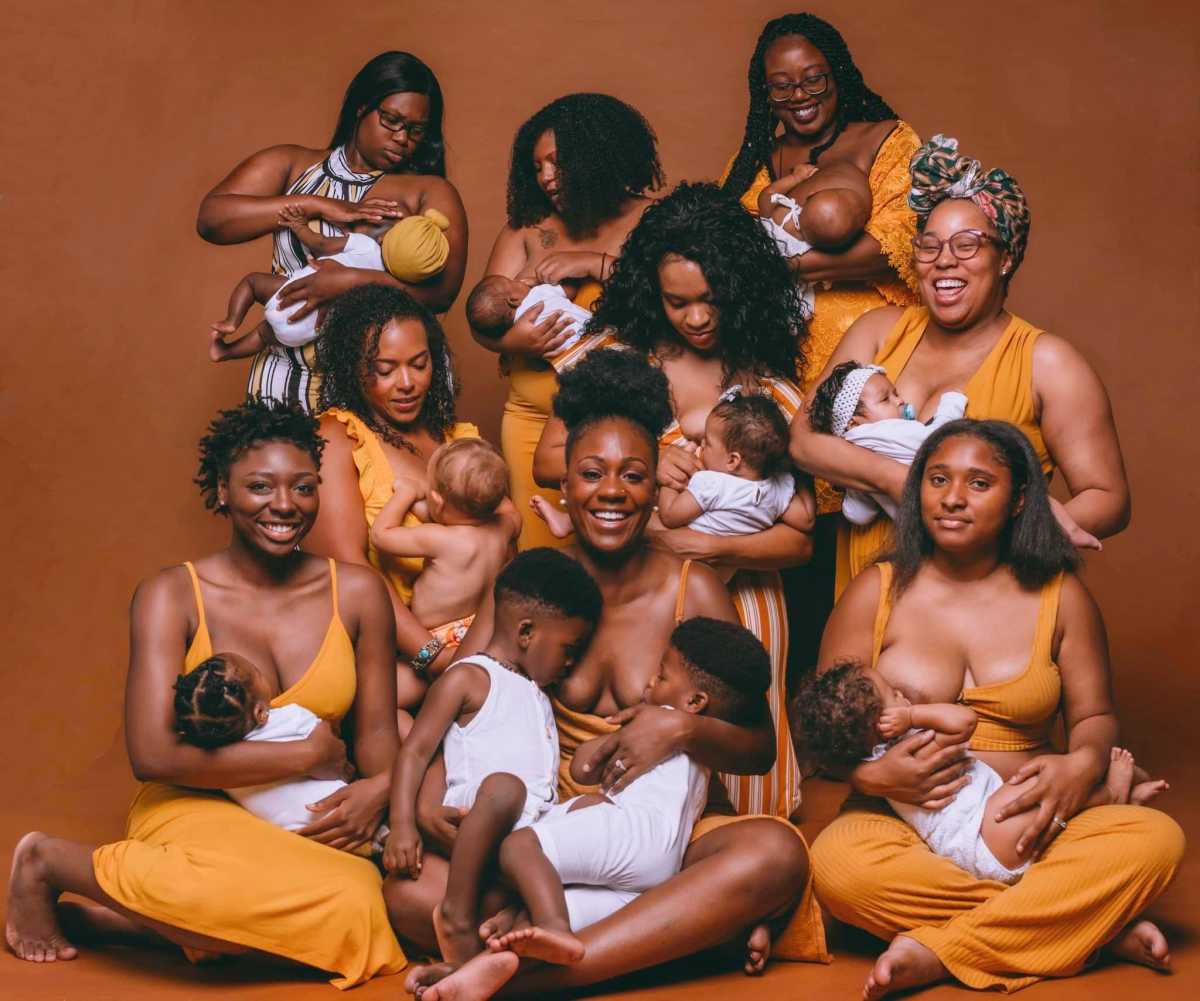
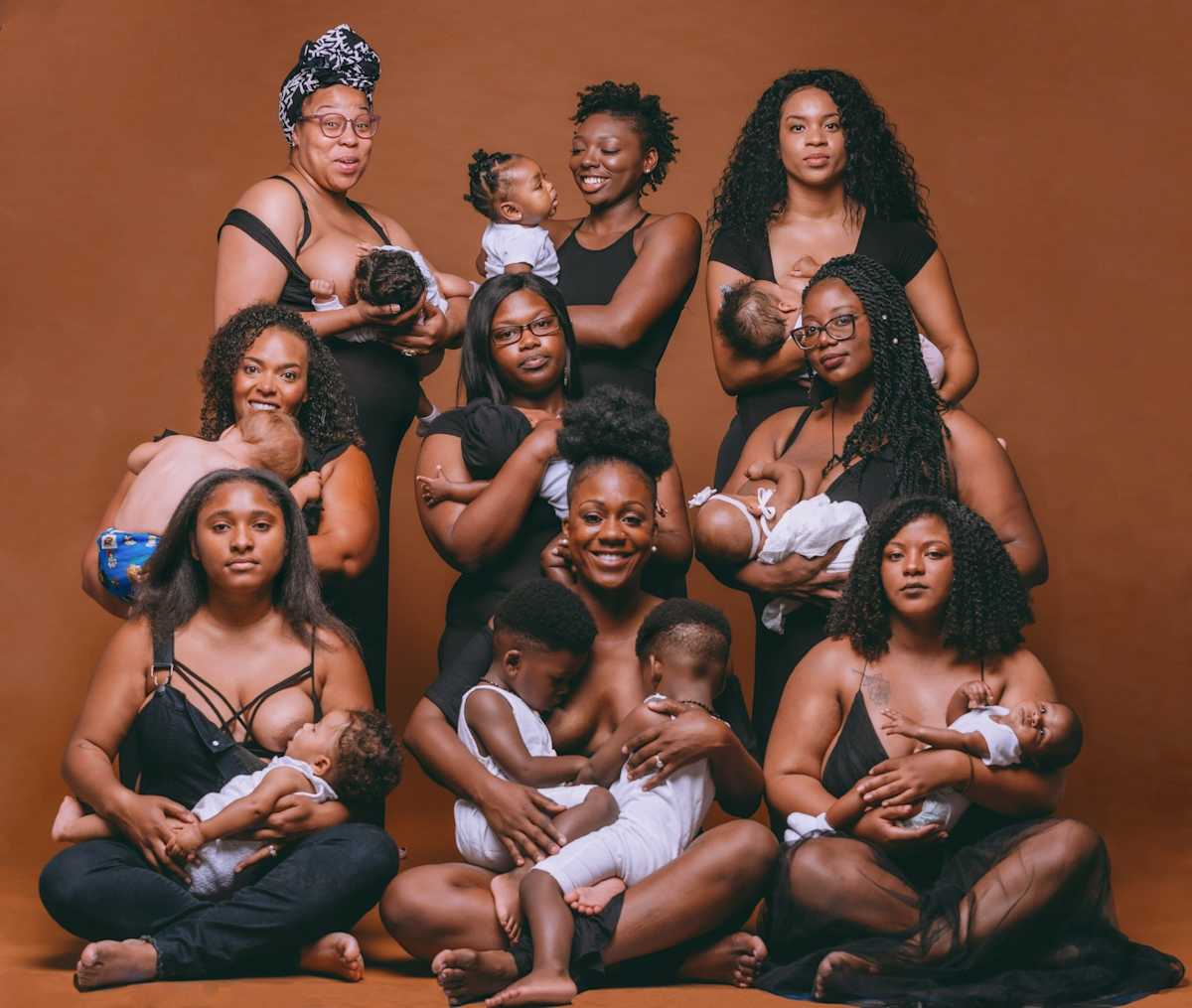
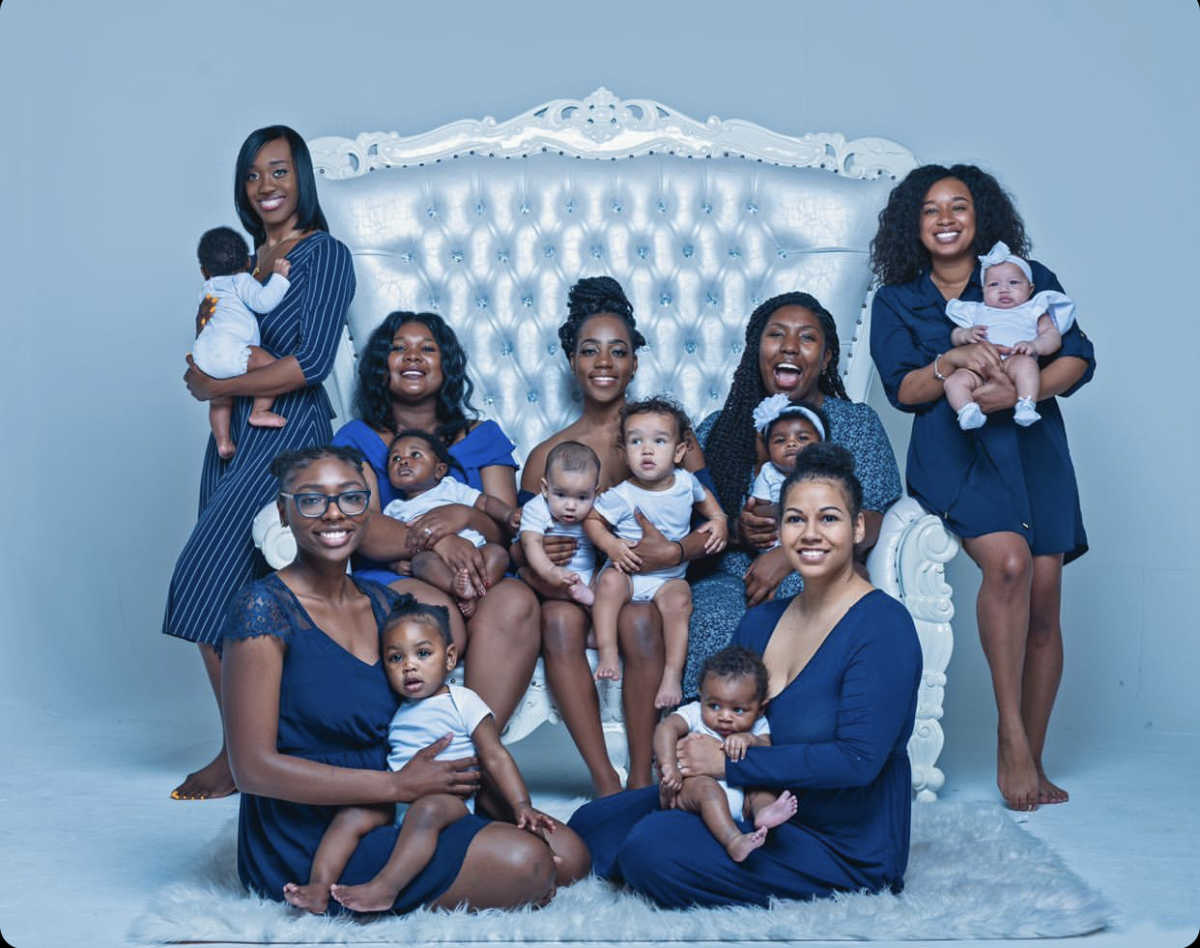
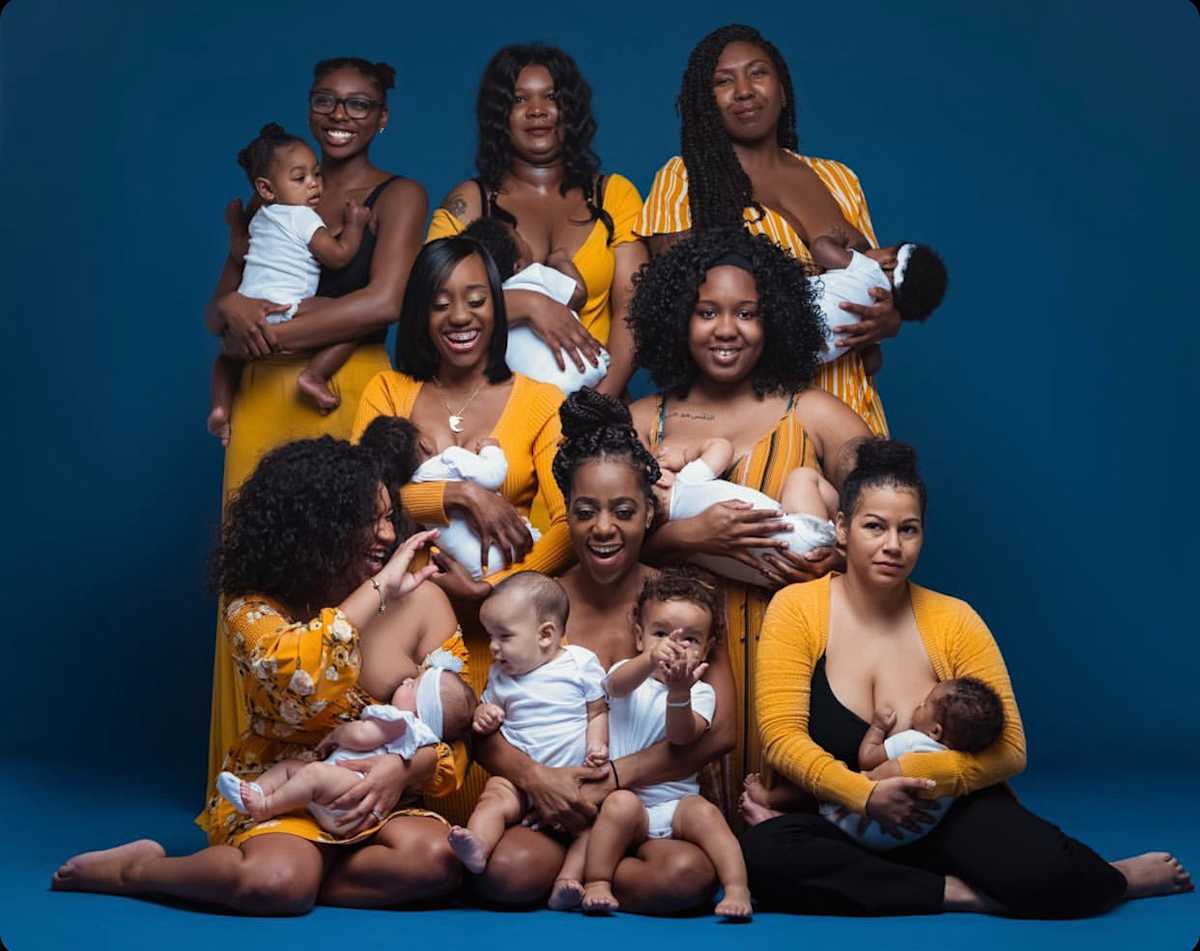
















COMMENTS